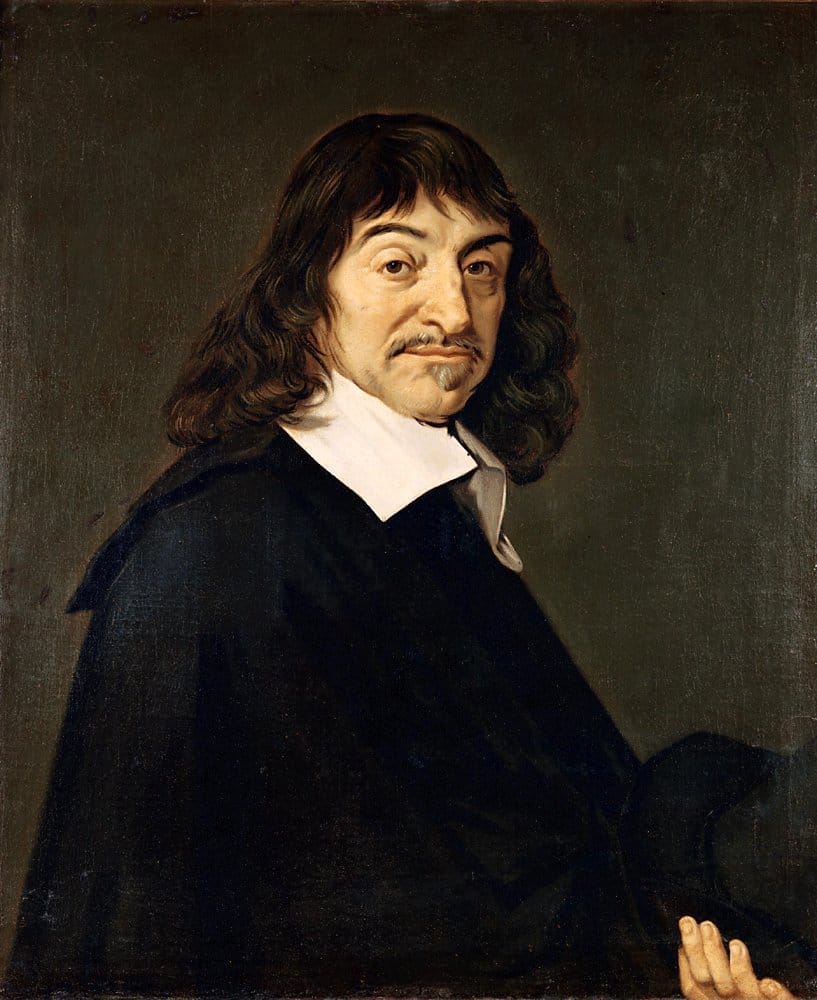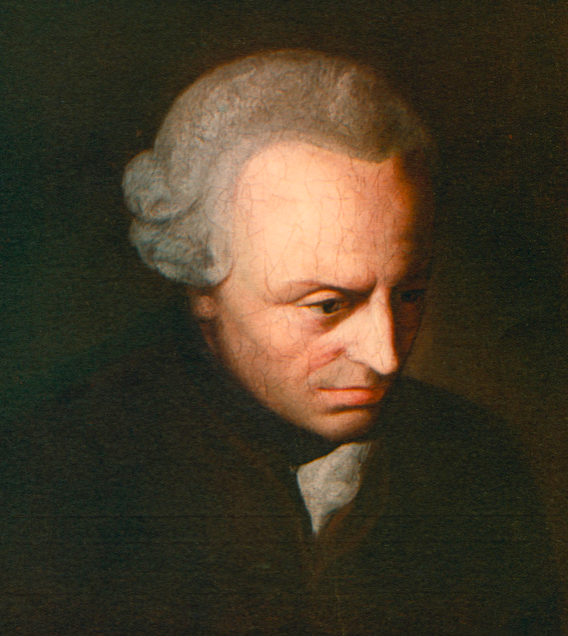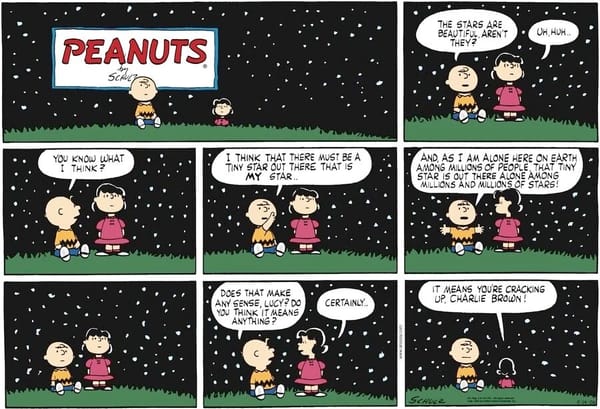On Descartes and Certainty
An essay about Cartesian certainty and its role in global scepticism. It is argued that we should reject his views: the condition of certainty imposes on knowledge is too strong to be acceptable to the point that it undermines itself and hence his rationalist project is ultimately self-defeating.

1. Introduction
In this essay, I will discuss the place and importance of certainty in Cartesian [of. Descartes] arguments for “global scepticism”. I will evaluate Descartes’ understanding of certainty, and his claims concerning the requirement of certainty for knowledge, as well as his claims concerning the objects that can be known through certainty. Additionally, I provide reasons for why one may wish to discard Descartes’ epistemological views.
2. The Role that Certainty Plays in Descartes' Argument for Global Scepticism
The role that certainty plays in Cartesian epistemology of global scepticism is such that certainty that a proposition is true is said to be a necessary condition on “knowing” that proposition. Cartesian certainty is defined in terms of indubitability, that is, we are certain a proposition is true if such a proposition is impossible to rationally doubt. Descartes’ First Meditation is constructed on the application of scepticism and doubt concerning apparent “knowledge”. Descartes systematically considers the dubitability of all things. He then subsequently, in the Second Meditation and onwards, proceeds to build and construct certain propositions that he believes can be known indubitably, more specifically, that he believes he, Descartes, can know indubitably. We shall now investigate these ideas more comprehensively.
2.1. What Certainty Means for Descartes
We will begin by analysing the exact meaning of Cartesian certainty.
Descartes defines certainty in terms of indubitability, meaning “the property of being impossible to doubt”:
[S]ince reason already persuades me that I should no less scrupulously withhold my assent from what is not fully certain and indubitable than from what is blatantly false, then, in order to reject them all, it will be sufficient to find some reason for doubting each one. (Descartes, 2008, p. 13). [1]
This does seem too strong of a condition to be reasonable, but we will discuss the unreasonability of conditions further in section 3.1. However, from this quote, we may construct the Cartesian concept of certainty as:
A proposition P is known certainly if and only if P is impossible to doubt in principle. [2]
2.2. That Certainty is Required to Know Things
Descartes argues that certainty is a necessary condition for knowing things. This is evident from [1], where he states that “Reason already persuades me that I should no less scrupulously withhold my assent from what is not fully certain and indubitable than from what is blatantly false”, in which he groups propositions which are not fully certain into the same category as those which are certainly false and disagrees with all propositions in this category. This entails that Descartes believes we should only believe propositions if we are certain, and for any propositions for which we are not certain, we should be sceptical.
Since Descartes argues that any proposition that is not certain is not knowable, he is now faced with the challenge of checking whether each proposition is known with certainty or not. In order to do this, he employs the so-called “Method of Doubt”, in which he groups propositions and attempts to undermine all propositions in this group at once, stating after [1]:
Nor shall I therefore have to go through them each individually, which would be an endless task: but since, once the foundations are undermined, the building will collapse of its own accord, I shall straight away attack the very principles that form the basis of all my former beliefs. (Descartes, 2008, p. 13). [3]
Descartes successfully undermines all propositions by stating that “I will therefore suppose that, not God, who is perfectly good and the source of truth, but some evil spirit, supremely powerful and cunning, has devoted all his efforts to deceiving me” (Descartes, 2008, p. 16). He introduces into socio-philosophical discourse a radical notion, that there is a possibility of an evil demon which exists and is tricking us in every possible way. This means it is possible that this demon is deceiving us about the existence of shapes, colours, numbers and our beliefs about logico-mathematical truths.
Since this is all a possibility, then we are not certain that these things are true. This gives rise to Descartes' idea of global scepticism: that seemingly nothing can be known with certainty, and since certainty is a necessary condition for knowing, that consequently, nothing can be known.
2.3. What Descartes Believes Can be Known with Certainty
2.3.1. Certainty That “I” Exist
The Cartesian solution to such a lack of certainty, and therefore knowledge, was to affirm, as rationally undeniable, that one exists, or in Descartes’ view, “I” exist. Descartes believes that he exists and that this fact is indubitable:
Did I therefore not also convince myself that I did not exist either? No: certainly I did exist, if I convinced myself of something. — But there is some deceiver or other, supremely powerful and cunning, who is deliberately deceiving me all the time. — Beyond doubt then, I also exist, if he is deceiving me; and he can deceive me all he likes, but he will never bring it about that I should be nothing as long as I think I am something. (Descartes, 2008, p. 18).
Subsequently, Descartes discusses in detail the exact nature of what he believes this “I” is. He concludes he is at least a thinking thing, a mind. He says “I clearly realise that nothing can be perceived more easily or more clearly than my own mind.” (Descartes, 2008, p. 24), that is, with reference to other entities, such as the body, or purported objects in the external world.
2.3.2. Other Things That Exist
In the Third Meditation, Descartes argues that one can know that God exists. That is, in Cartesian fashion, one can know that God exists with certainty (We will not go into detail about the argument because it is complicated and beyond the scope of this essay).
In the Fifth Meditation, Descartes says:
But once I have perceived that God exists, then because I grasped at the same time that everything else depends on him, and that he is no deceiver, and from this deduced that everything I clearly and distinctly perceive is necessarily true, then, even if I am no longer concentrating on the reasons why I judged this to be true, provided I remember that I did see it clearly and distinctly, no contrary reason can be adduced that can induce me to doubt it; and thus I have true and certain knowledge of it. (Descartes, 2008, p. 50).
Hence, now that Descartes knows that “everything I clearly and distinctly perceive is necessarily true”, in the case he perceives material objects, he knows them to exist (again, with certainty). Furthermore, Descartes discards the objection that clear and distinct perceptions may be dreams rather than real. According to Descartes, this possibility “makes no difference. For certainly, even if I were sleeping, if something is evident to my understanding, then it is altogether true” (Descartes, 2008. p. 50).
To summarise: Descartes self-constructs propositions he believes can be known because they can be known with certainty. Namely, he states that “I” can be known with certainty, God can be known with certainty, and material objects perceived with clear-distinct perception can be known with certainty
3. That Certainty Need Not Play a Role in our Epistemology
We may interpret Cartesian epistemology as such:
- A proposition P is known certainly if and only if P is logically impossible to doubt.
- To know any proposition, we must know that proposition with certainty.
- Therefore, to know any proposition, it must be logically impossible to doubt that proposition.
I believe that premise (2) is too strong of a condition to hold, and that the conclusion (3), (in the case we were to accept both premises as true) is self-refuting. I also defend the idea that it is logically possible to doubt (3). These claims are defended in more detail in the following paragraphs.
3.1. That Premise 2 is False
It is unclear why it is necessary to “withhold assent from what is not fully certain and indubitable”. This is an unreasonably strong condition, and so we may assent to propositions which are not fully certain whilst acknowledging that we are not 100% certain about them. Indeed, certainty is an attitude we have toward a proposition, and we may still have knowledge by having uncertain attitudes toward propositions.
3.2. That the Conclusion is Self-Refuting
We can reasonably ask why the proposition
To know any proposition, it must be logically impossible to doubt that proposition [8]
is true, and if so, why it is indubitable. Prima facie, it seems that this condition of being logically impossible to doubt is just a definition of certainty instead of a fact about what certainty is. If this is the case, it seems like an arbitrary condition. Since this is the case, we may ask whether there is a good reason to prefer this condition on knowledge to other conditions, such as one that conceives of certainty in terms of infallibility, where a belief is certain if it is guaranteed to be true (Reed, 2008). Descartes does not justify why [8] is impossible to doubt, and so we will not assent to the claim that indubitability should be equated with certainty and that this indubitability in particular should be a condition on knowledge.
In addition to this, not only is [8] unjustified, but it is self-refuting because it fails its own criteria. As mentioned above, we can doubt the proposition [8] as being false in a case where certainty is instead rendered as infallibility, that is, we may instead have the condition of “To know any proposition, knowing must entail the truth of the proposition”. Therefore, the claim that “To know any proposition, it must be logically impossible to doubt that proposition” is logically possible to doubt, so it fails its own criteria. Since it is not certain, according to Descartes' own idea that certainty is a necessary condition to know a proposition, then we must withhold our assent from [8].
3.3. The Demon Undermines Inference
Descartes, in his First Meditation, discusses a potential cause for worry:
[J]ust as I judge now and again that other people are mistaken about things they believe they know with the greatest certitude - that I too should be similarly deceived whenever I add two and three, or count the sides of a square, or make a judgement about something even simpler, if anything simpler can be imagined? (Descartes, 2008, p. 15).
If it is the case that the Demon is able to trick us about “[Adding] two and three, or [counting] the sides of a square”, this is the same as deceiving us about the rules of inference. (Since Descartes is concerned with certainty, we will discuss this with respect to deductive inference only, that is, the type of inference where if the premises are true and the argument is valid, then the conclusion is necessarily true).
It is for this reason that it is thought that Descartes says “I can finally decide that this proposition, ‘I am, I exist’, whenever it is uttered by me, or conceived in the mind, is necessarily true” (Descartes, 2008, p. 18), instead of the quote “I think, therefore I am” which was in his previous work Discourse on the Method, since the latter involves an inference. It seems Descartes has updated his view here and now believes that no inference is needed to be certain of his existence.
However, there does not seem to be any reason to assume that this is the case. It does still seem as if there is an implicit inference, by which Descartes moves from thinking about the demon to concluding that he is and that he exists.
As a first point to mention, if it is the case that the Demon is deceiving us about the laws of inference, it seems as though Descartes would not be successful in proving that God exists, since the proof he uses invokes inference (We do not discuss the details of the proof in this essay). Due to this, it would seem that Descartes cannot be certain about material objects, since the existence of a non-deceiving God is a necessary condition on knowledge of material objects for him.
A second point of discussion is that if we are wrong about the laws of inference, we cannot use the inference mentioned at the beginning of section 3. Since this is crucial to Descartes' epistemology, it seems that if we do accept that the demon undermines inference, then the whole Cartesian project fails here.
3.3.1. Can we actually be deceived about the laws of inference in this manner?
It seems if the demon does undermine inference, we cannot conclude that we are uncertain of the laws of inference, since to conclude this requires that it is possible that a demon is deceiving us, and this involves an inference. We should not be making these kinds of inferences if the demon can deceive us about them, and so this very idea that the demon can undermine inference is self-refuting.
4. CONCLUSION
To conclude, Descartes associates certainty with indubitability, and argues that certainty is a necessary condition for knowledge. This motivates his global scepticism in which he argues that since it may be possible that a malicious omnipotent creature exists who intends to trick him, then it is possible to doubt everything.
We also have reasons to believe that, contrary to Descartes' claims, certainty is not a necessary condition for knowledge.
REFERENCES
Reed, B. (2008). Certainty (Stanford Encyclopedia of Philosophy). [online] Stanford.edu. Available at: https://plato.stanford.edu/entries/certainty/.
Descartes, R. (2000). Discourse on Method and Related Writings. Penguin.
René Descartes (2008). Meditations on First Philosophy: with Selections from the Objections and Replies. OUP Oxford.





